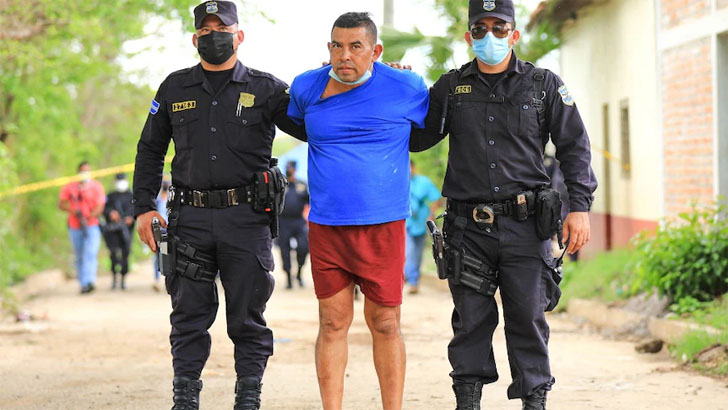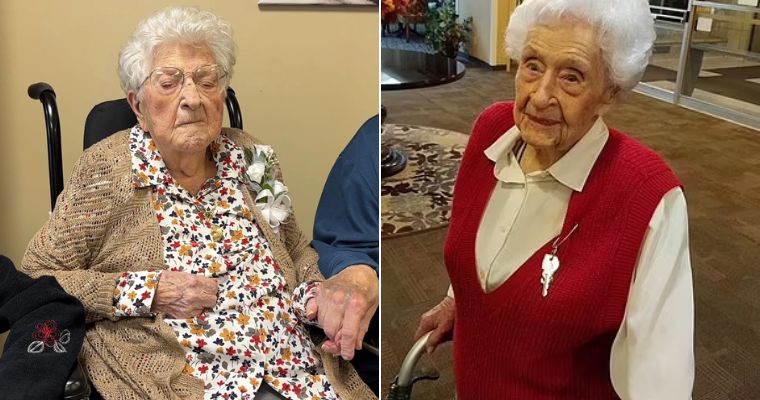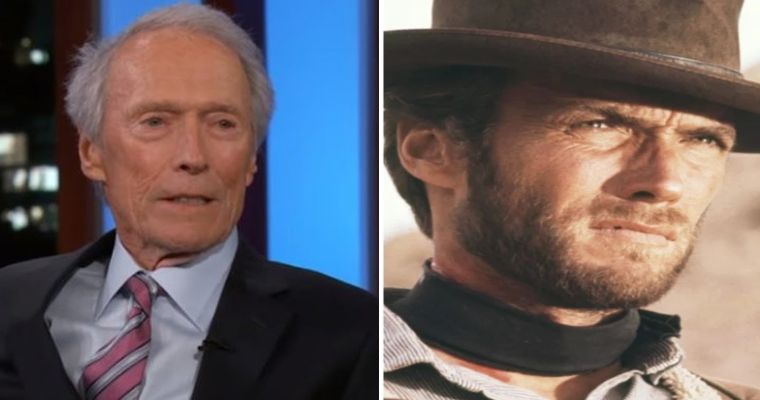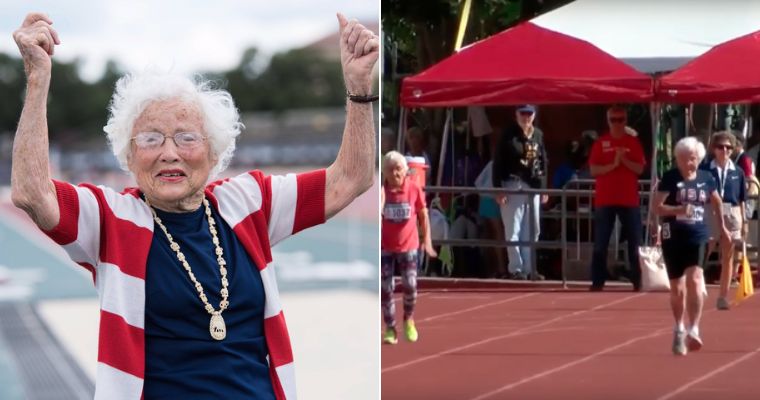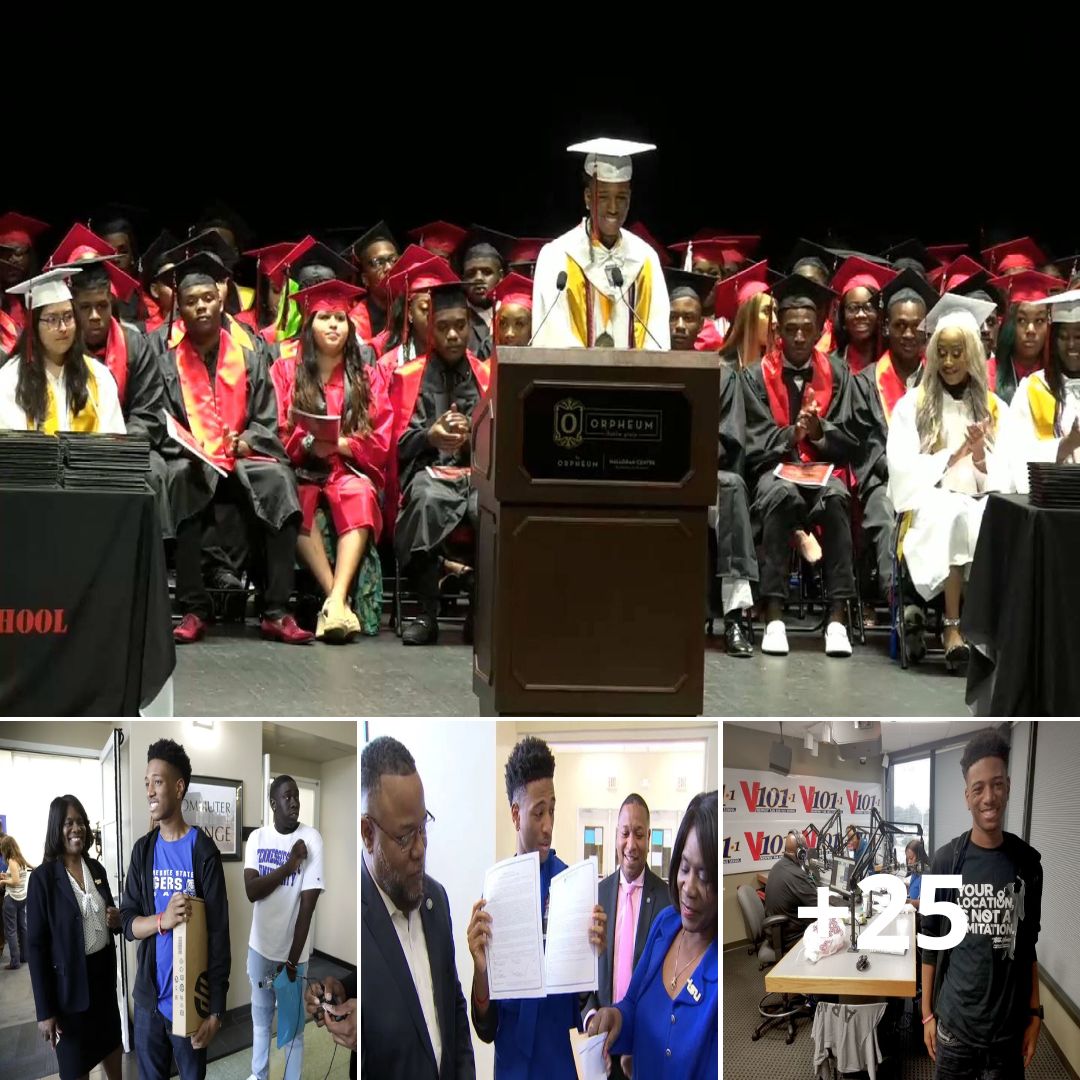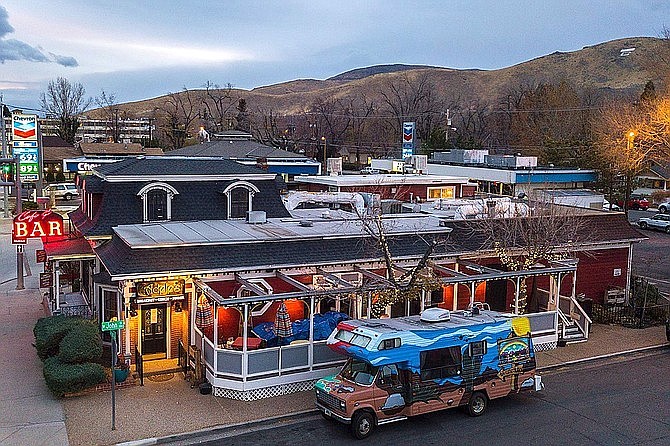
Adele’s on Carson Street before it was torn down in 2020.
Talking to Adele’s chef Charlie Abowd is like talking to Carson City royalty because of his years-long connection to celebrities, lawmakers, local families, restaurants and organizations.
But to call Abowd royalty would belie what is humble in him and his legacy.
“Through tragedies, through celebrations, we live,” Abowd said. “We still live.”
The historic building on Carson Street known as Adele’s was torn down in 2020 after a fire, but the colorful history that transpired within the restaurant’s walls lives on in print.
On March 31, Abowd, 72, met the Appeal in the Nashville Social Club to talk about his new book, “Recipes and Rambles that Made Adele’s a Nevada Hot Spot.” The book was co-written by Karel Ancona, former Nevada Appeal writer who collaborated with Abowd on entertainment news and his recipe column for the newspaper.
Abowd estimated roughly 200 people showed up to a book signing at Nashville Social Club earlier in March. The book sold out. Nashville Social Club chef Tony Schaeffer and Abowd collaborated on recipes included in the book.
“We’ve been working together for the columns for 20 years,” Abowd said of Ancona.
He said she did much of the writing, and he did much of the storytelling for the book. Other contributors to the book include Nevada journalist Jon Ralston.
“I’m a well-known rambler,” Abowd said. “My wife goes, ‘I’m bringing the shepherd’s hook with me tonight because you’re going to talk too much.”
Abowd is a rambler, the kind whose eyes light up when wandering stories lead to something profound. His storytelling doesn’t start in the 1990s when he and wife Karen Abowd bought Adele’s from Charlie’s parents. It doesn’t start in 2005 when Charlie got to cook at the James Beard House in New York City, in the same kitchen where Julia Child once cooked.
By his account, the storytelling starts in the early 20th century when his family immigrated to America from Lebanon.
“There were a lot of Middle Eastern people migrating to the United States at that period of time,” he said.
His family first settled in the Midwest. Like Abowd, they were culinary artists, originally from somewhere outside Beirut.
“Candy makers and pastries,” Abowd said.
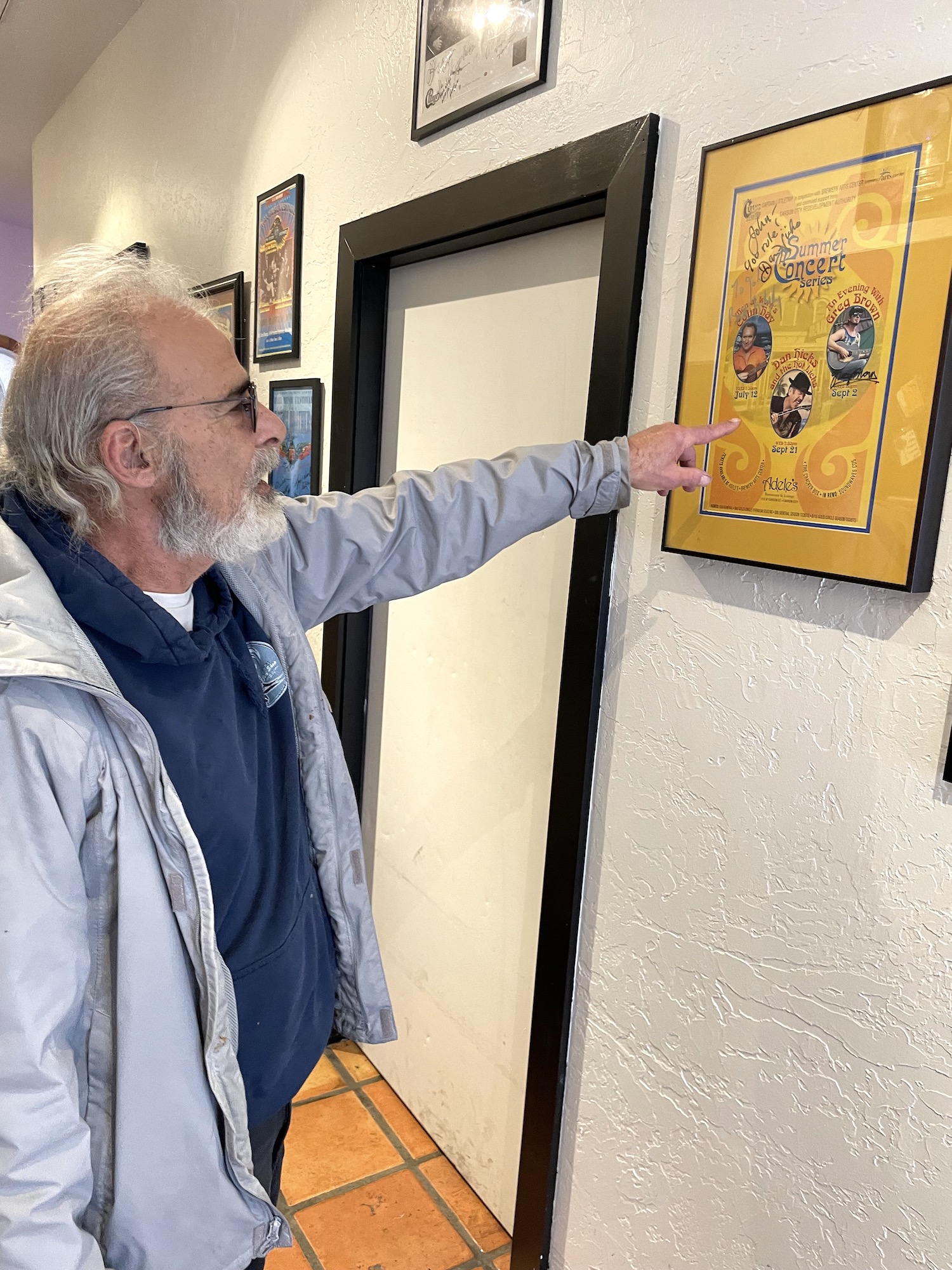 Charlie Abowd at Nashville Social Club on March 31, pointing to an old concert poster from Adele’s. The latter was a popular restaurant in downtown Carson that was family owned and operated for 40 years. (Scott Neuffer photo)
Charlie Abowd at Nashville Social Club on March 31, pointing to an old concert poster from Adele’s. The latter was a popular restaurant in downtown Carson that was family owned and operated for 40 years. (Scott Neuffer photo)
He said in those days, immigrant families funded the businesses of others from the same country. In this way, Abowd’s family slowly migrated West.
“That’s how my family got started in San Francisco opening restaurants,” Abowd said.
He pointed out his cousin, Jerry Massad, runs the popular Cracker Box restaurant in Carson. His cousin was part of the same wave of migration and enterprise. Abowd’s sister, Cyrina, runs the Stone House in Reno, a restaurant founded by their father.

Despite these Northern Nevada roots, Abowd actually grew up in the Bay Area in the 1960s and 70s during the anti-war movement, then focused on the Vietnam conflict. The experience informed his politics. When asked if he’s a hippie, he said, “No doubt about it — I wear that badge proudly.” But he was quick to point out he’s also a businessman. He described his life philosophy as a kind of synthesis of different experiences.
“Civil disobedience, in a lot of ways, was the way I grew up,” he said.
It was after high school, attending college in San Jose, when Abowd met Karen. She would become his life partner. She would later establish the Greenhouse Project, a Carson-based nonprofit, and serve two terms on the Carson City Board of Supervisors.
In 1977, the same year Paul and Adele Abowd purchased the 19th century Victorian building in downtown Carson to open a new restaurant, the young Charlie and Karen were touched by tragedy. They lost a newborn son to SIDS.
“We stayed at a friend’s cabin outside of Newport, Washington,” Abowd wrote in his book about the tragedy. “The idea was to get some breathing room from this suffocating love that was shared with us by family and friends. We needed space.”
Paul, the infant son named after his grandfather, wouldn’t be the last child the couple would lose. Fast forward to March 31, 2023, when Abowd told the Appeal about losing his adult son, Eric. When talking about Eric, his demeanor shifted as if a shiver had just passed over him.
“I still wake up in the middle of the night,” Abowd said. “My last experience was seeing the body bag put in the back of the coroner’s office, and that was him.”
Eric Abowd, former Carson High football captain, was 39 when he died.
“He had biggest and kindest heart; he was brilliant yet goofy with a fun loving, belly laughing, sensitive soul,” reads a 2020 obituary.
Losing two sons is beyond comprehension for most parents. The way Abowd embraces life — “through tragedies, through celebrations” — shows a certain resilience. That spirit was needed in other challenges. After the economic recession of 2008, for example, the family had to rebrand the restaurant.
“Our daytime business really dwindled down to bits and dribbles and was becoming unsustainable,” Abowd said. “We decided we were going to change the tone of the restaurant.”
In the following decade, while still retaining the identity of Adele’s that his parents had created, Abowd and his spouse began to offer lighter fare and more accessible price points. The newly named Cafe at Adele’s was a hit.
“It was very popular,” said Abowd. “Our breakfasts were busy, and our weekend breakfasts were off the charts.”
The family worked with local ranchers and farmers for ingredients. Abowd said his favorite thing to work with in the kitchen was pork belly.
“Why did I like it?” he asked. “It was something that was us. You’re just not going to go down the street and find pork belly benedict. I mean, I just love food, all food.”
Good food was one factor in Adele’s success. Being a venue for concerts also played a role. It’s no secret the restaurant was a hot spot for lawmakers in town for the Nevada Legislature.
“That goes back to when mom and dad bought the restaurant. Before that, it was the Music Box,” said Abowd. “It was a hangout for the legislators and the lobbyists because of the piano bar.”
Paul and Adele Abowd kept that tradition alive, and so did Charlie and Karen.

“I loved walking around after dinner, seeing who was with whom, maybe peering into the back room to see what major legislative players were consummating a deal that would change Nevada,” Ralston wrote in the foreword to the book.
Abowd said he and restaurant staff abided by one rule: what happens at Adele’s stays at Adele’s.
“One of the alluring parts of Adele’s through the years with the legislators and lobbyists is the fact that what happened at Adele’s never went out,” he said.
Political intrigue, however, is not what Abowd values most from his time in the restaurant. He mentioned a lima bean and shrimp dish from 2005, when Hurricane Katrina had ravaged New Orleans.
“America was pretty devastated by the loss down there and everything,” he said.
Abowd said he remembers wanting people to sit around the table and just talk.
“I can’t even begin to emphasize how important that is,” he said. “Let’s all sit together and have a moment of silence for the people of Louisiana.”
These are the moments Abowd cherishes.
“We had all kinds of little things like that, and that’s what really made me happy,” he said. “What made me happy was talking about the Greenhouse Project or feeding the homeless on Record Street, what they call ‘Tent City.’ Those are the things that define me.”
Although the restaurant is no longer standing, Abowd is continuing his activism by donating all profits form the new book to the Greenhouse Project.
“I’m glad to be retired,” he said, mentioning his grandchildren.
Abowd still cooks, though maybe not with “the knife skills” he once had. Reminiscing about his early life and rebellious spirit, he said following his family’s culinary tradition was right for him.
“I think it just ran in my blood,” he said.



